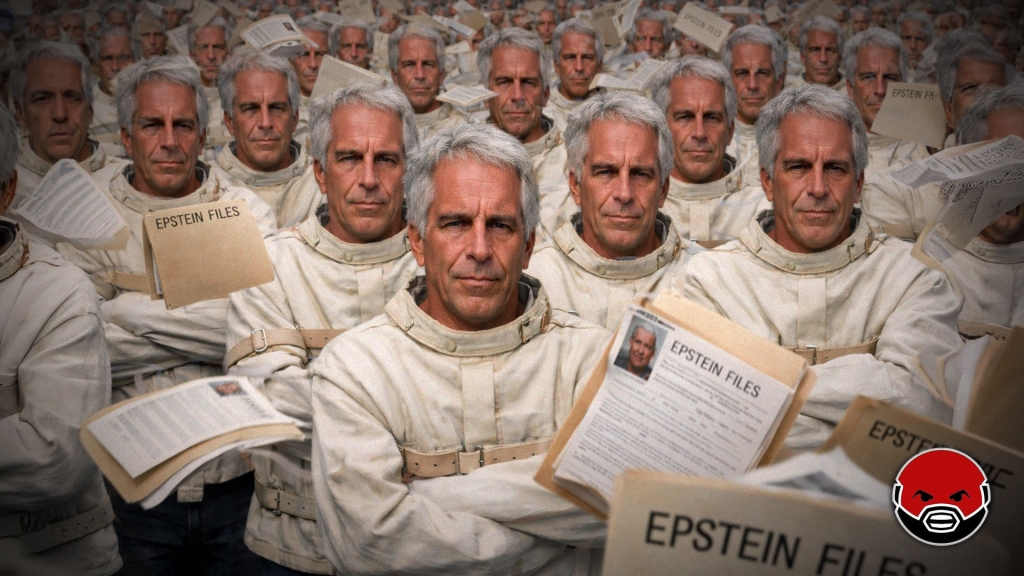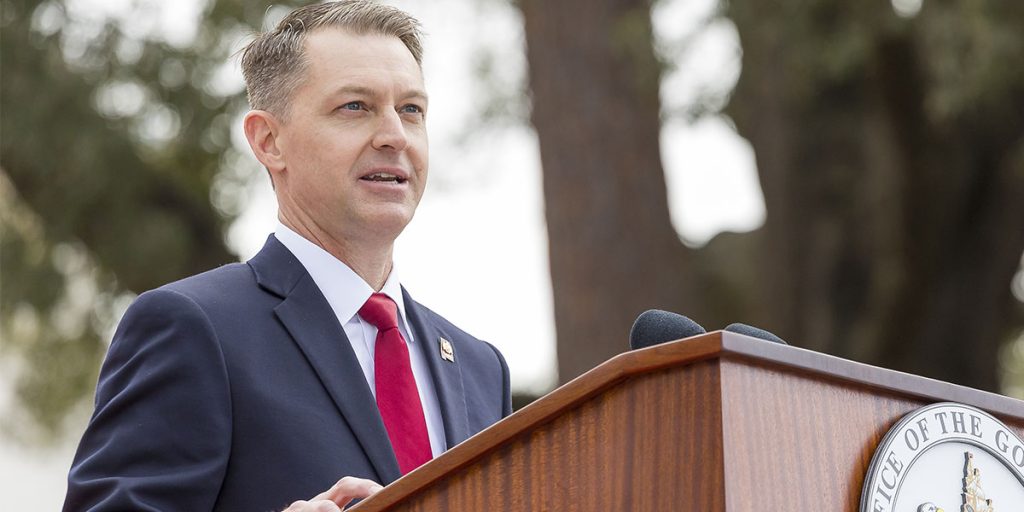7. President Donald Trump commended U.S. forces for a precision air strike in Syria that targeted and killed a senior official of Hurras al-Din, an Al-Qaeda affiliate, calling it a decisive blow against terrorism. The operation, led by U.S. Central Command, aimed to disrupt the group’s activities and protect U.S. and allied interests in the region. Trump’s praise highlights the administration’s continued focus on counterterrorism efforts, particularly in Syria, where Hurras al-Din has sought to establish a caliphate and threaten Western interests.
6. The Baldwin County Jail has lost its approval to hold ICE detainees after failing to meet federal regulations, including the requirement for a daily recreational yard, leading Sheriff Anthony Lowery to criticize the situation by stating that immigrants “have more rights than U.S. citizens.” As a result, detainees must now be transported to facilities in Mississippi and Louisiana, complicating immigration enforcement operations. Lowery has contacted Alabama’s U.S. Sens. Tommy Tuberville (R-Auburn) and Katie Britt (R-Montgomery) to seek resolution, while emphasizing that the county’s efforts to assist federal agents remain ongoing.
5. Elon Musk’s Department of Government Efficiency (DOGE) is pushing for access to the IRS’s Integrated Data Retrieval System, which contains detailed financial information on millions of taxpayers, sparking alarm within the agency over privacy and security risks. The request, part of DOGE’s mandate to modernize government technology, has raised fears about the potential misuse of sensitive data, especially given President Trump’s history of targeting political opponents and the unprecedented nature of granting such access to political appointees. Musk has claimed that millions of people in the Social Security database are listed as over 100 years old, with some even recorded as over 300 years old, raising questions about potential fraud and inefficiencies in the system.
4. Alabama State Sen. Merika Coleman (D-Birmingham) has proposed the Gun Violence Protective Order Act which would authorize courts to issue orders requiring individuals deemed a danger to themselves or others to surrender their firearms, also known as “red flag laws.” The bill aims to reduce firearm-related deaths and injuries by allowing law enforcement, teachers, and family members to petition for such orders, with penalties for violations and false filings. The bill is pending in the Senate Committee on Judiciary. It reflects a broader effort to address gun violence through legal intervention but moves like these have a tough hill to climb to get to a vote.
3. Another week, another lame protest from the American Left as protesters across the U.S. rallied on Presidents Day under the banner “No Kings on Presidents Day,” braving freezing temperatures to oppose President Donald Trump and Elon Musk, head of the Department of Government Efficiency. The demonstrations, organized by the 50501 Movement, criticized Trump’s policies and recent federal layoffs, with participants chanting slogans like “Elon Musk has got to go” and carrying signs denouncing the administration. The protests, held in Boston, Washington, D.C., Seattle and elsewhere, including Huntsville, underscored growing public resistance to Trump’s leadership and Musk’s efforts to slash federal spending.
2. As we continue to pretend a lottery/casino/gambling deal is right around the corner, like we have for 20 years, the Birmingham Race Course, recently acquired by the Poarch Band of Creek Indians, is expected to be redeveloped into a premier entertainment destination, with the tribe considering significant investments to modernize the facility and potentially create a resort similar to its Wind Creek properties. While no new legislation is required to continue current operations, the tribe hopes for supportive laws to unlock the site’s full potential, including expanded gaming and amenities. The project reflects the Poarch Band’s broader strategy of investing in high-scale, entertainment venues that benefit the local community and the state’s economy, along with many suggesting there is potential for more gaming in the state with a focus on what could be done down the line.
1. Punitive tariffs are out, reciprocal tariffs are in, now that President Donald Trump’s reciprocal tariff strategy has been announced. The plan is designed to match the import duties imposed by other countries and aims to reduce trade deficits, boost U.S. manufacturing, and address unfair trade practices. While the approach is seen as less inflationary and more targeted than universal tariffs, it introduces significant administrative complexity and could strain trade relationships with countries such as India, the EU, and South Korea, which face higher tariffs under the plan BECAUSE they have higher tariffs on U.S. goods. The plan is simple: tariffs or fees that American companies encounter when exporting their products to another country should also be imposed on imports coming from that same country, also known as … fairness.
Listen here:
Dale Jackson is a thought leader for Yellowhammer News and hosts a talk show from 5-9 a.m. weekdays on WVNN and from 10-11 a.m. on Talk 99.5 and News Radio 1440, with a rebroadcast on WVNN at 10 p.m.











